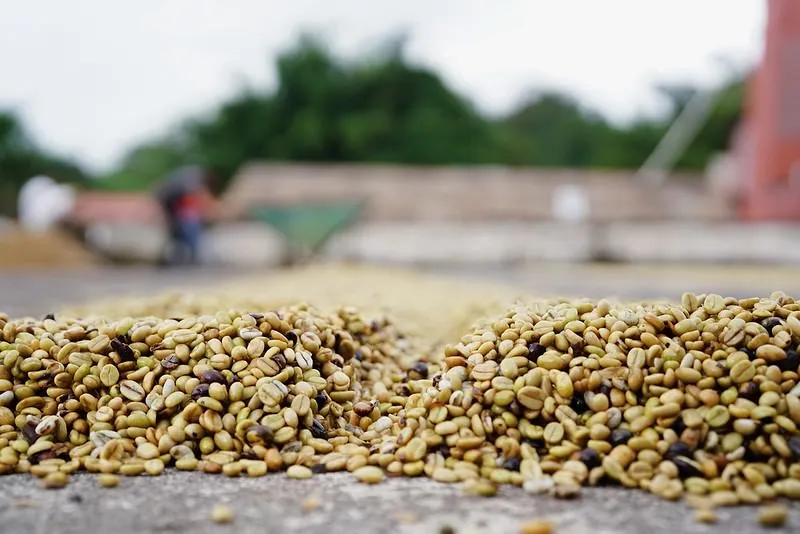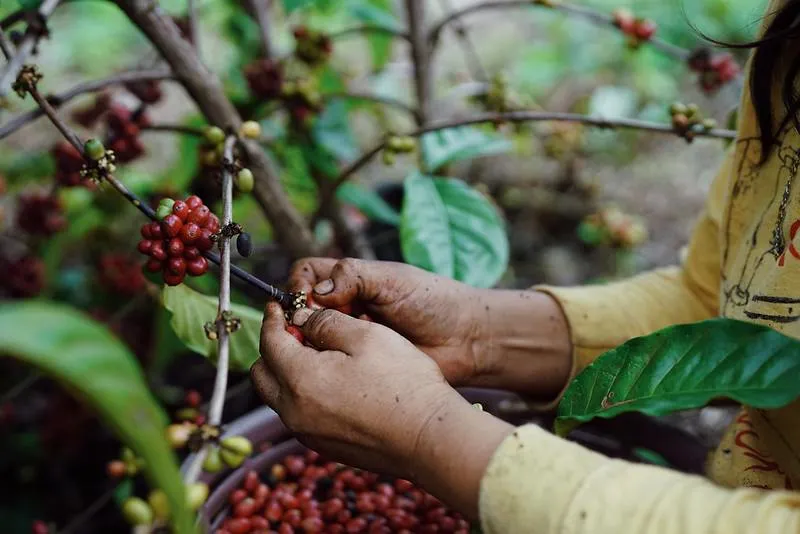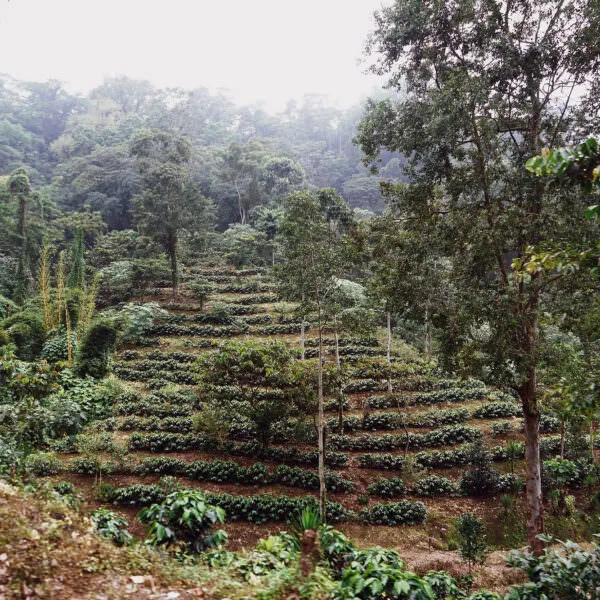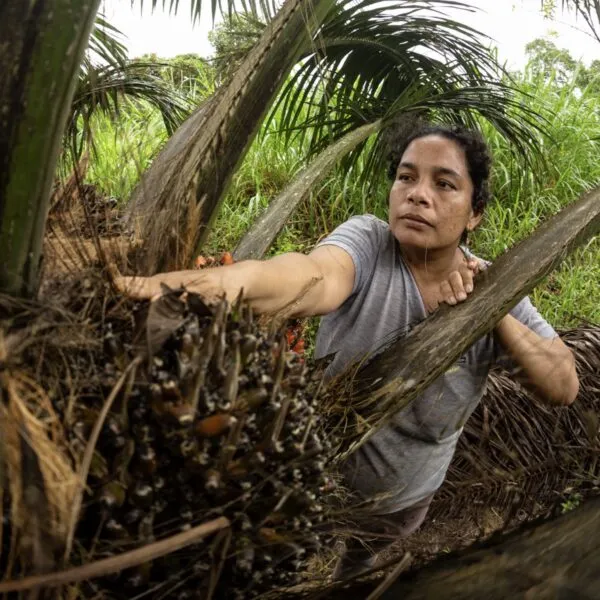Many millions of farmworkers plant, cultivate, and harvest coffee around the world, including over 300 thousand people working on Rainforest Alliance Certified farms. We are committed to the safety and fair treatment of these workers, and to creating a world where socially sustainable business is the norm.
Forced labor issues in coffee
Farmworkers are the engine of the coffee business. Yet they represent the least visible, and often least supported, link in the supply chain. Concentrated harvests, which are characteristic of the coffee industry, result in workers migrating for short term labor, often without written employment contracts. Many migrant workers are recruited or transported by labor brokers, who can easily deceive or exploit them. They may not speak the language, may have limited rights under local law, and might depend on their employer for food, housing and other necessities. Local workers, too, can be vulnerable to forced labor-related practices. These include extremely long hours, illegal deductions from their pay, or incomplete or non-payment for extra time.
At the Rainforest Alliance, we believe that every worker matters, and every abuse that occurs—whether it be exploitative recruitment practices, pay-related issues, or substandard housing—is a human rights violation that requires decisive action.

Systemic problems, systemic solutions
Tackling forced labor at the farm level requires more than prohibition, which often drives the problem underground and does nothing to help local actors resolve it. A better course of action involves assessing and mitigating risks, addressing root causes, and going beyond the traditional audit model to open up channels of trust and communication with workers.
To be truly successful, we must also address the social, economic, and political issues that go beyond the farm. The solution must include collaboration between farmer communities, companies, civil society, governments, and others. The situation will not change without this kind of investment, and we all need to work together.
What we’re doing
We have shifted towards an “assess-and-address” approach in our new 2020 Certification Standard to tackle forced labor and other human rights abuses. Instead of zero tolerance, this approach focuses on building farmers’ capacity to understand how forced labor happens, identify their own risks, mitigate them, and self-monitor on an ongoing basis. If a case is found, it also requires very specific remediation steps to stay certified, and in severe cases, farms’ certificates are suspended or cancelled. The “assess-and address” model builds upon past learnings and years of experience working with both farms and businesses. This program, combined with an assurance framework that includes independent third-party auditing, provides a strong framework for our goals. Read our full white paper on forced labor here.
Certification is only one piece of the puzzle. We use various strategies and partnerships to reduce the risk of forced labor in the sectors we work while driving positive change for people and nature. We have our Tailored Programs that work directly with companies to help them shape and meet their sustainability goals. In addition, our landscape-level interventions support both environmental and social outcomes. And through advocacy, we generate positive pressure on governments, NGOs, and other stakeholders to advance sustainability and improve or enforce national legislation.
What you can do
Interested in collaborating with us on improving these issues in your supply chain? Join our certification program or create a tailored program to help your company achieve its commitments, join the Sustainable Coffee Challenge, or send us an email.



